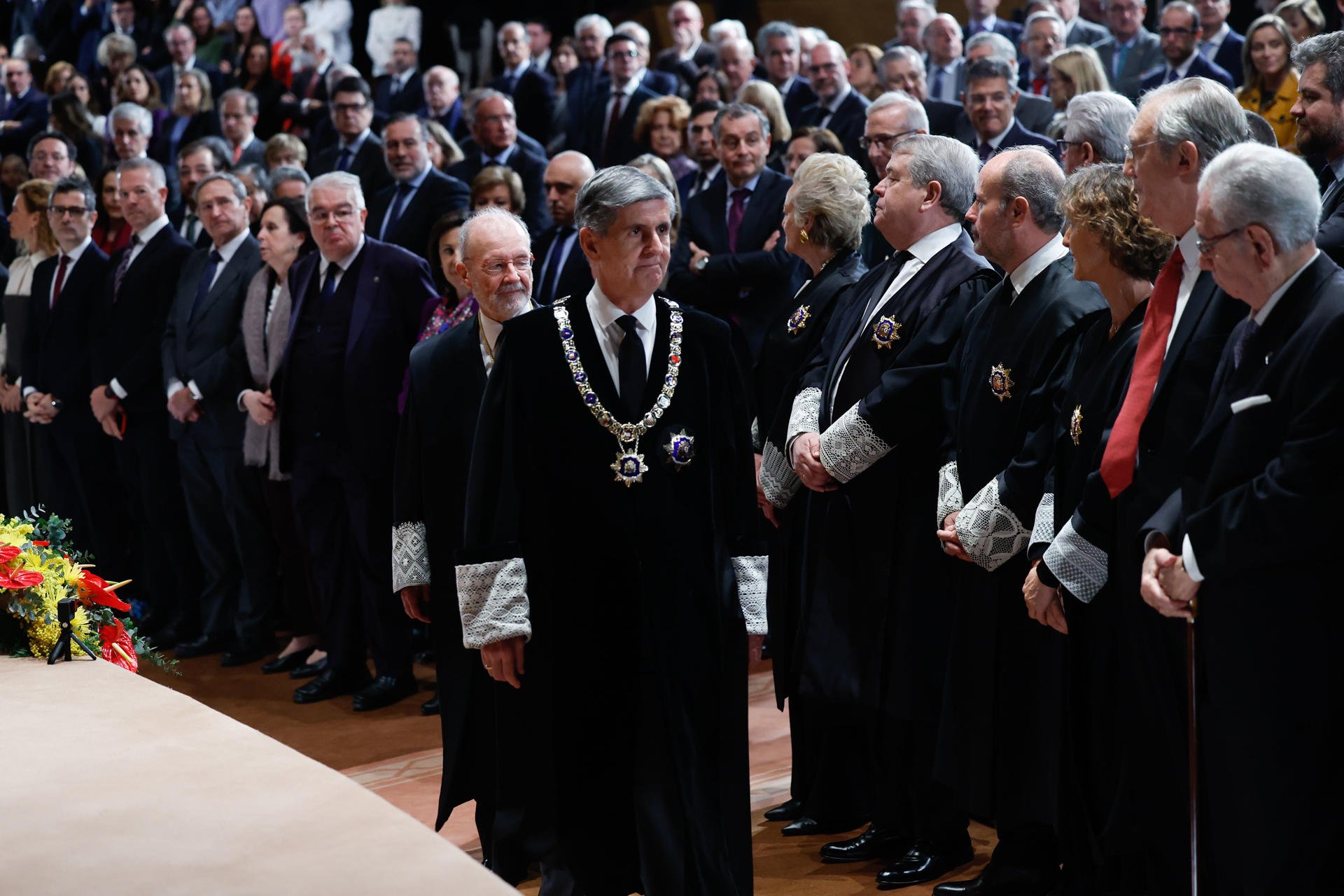As judge Pedro González-Trevijano finally departed from his position as president of the Spanish Constitutional Court this Monday, he gave a speech full of criticism of the Spanish government and the Catalan independence movement. In the months-overdue taking of possession by the new judges in Spain's court of guarantees, he lashed out at the intention of the Spanish government to carry out a fast-track reform of the judiciary in order to end the deadlock over renewal of the Constitutional Court, a move that had prompted him - and the conservative majority - to react so that it did not come to fruition.
"We must not rush without consensus into reforms that affect the original constitutional pact, nor must we blur the autonomy of some constitutional bodies with respect to others", said the judge. Likewise, he acknowledged that his time at the head of Spain's court of guarantees has not been easy. "These have not been easy times; they never are, and maybe now even a little less so", he added. Despite admitting that "substantive disputes with political weight" constantly pass through the hands of the judges, he warned that the function of the Constitutional Court is to "examine legal claims, not political issues".
Having said that, Trevijano declared himself to be "against the dichotomy between conservative and progressive judges". "I don't share it", he said during his farewell speech, and nor did he share "the calls for impossible unanimities, which are non-existent in other areas of society". In addition he stressed that "there are also no partial judgments by the majority": instead, he said, there were only "judgments, although we all strive to obtain the greatest possible support for them", he said. As well, in defence of the independence of the judges, the now-former president of the Constitutional Court stated that "the appointment procedure does not involve a mechanism of representation, since the judge does not represent anyone".
Trevijano also fired some of his last ammunition at the Catalan independence movement, affirming that the Spanish Constitution "cannot be opposed by popular sovereignties that claim to emanate, without any intermediation, from the supposed direct mandate of a group or a collectivity". "In Spain there is only one sovereignty, the national sovereignty, that of the Spanish people, solemnly expressed on December 6th, 1978". According to the former leader of the constitutional judges, before the Spanish people, there is no place for "outdated sovereignties of kings, nor reserves of jurisdiction already overcome, nor parallel parliamentary sovereignties, without prejudice to recognizing the political primacy of the Cortes Generales" - the Spanish houses of Parliament.
Spanish executive: a "day of total institutional normality"
Shortly before this event began, the Spanish minister for the Prime Minister's Department, Félix Bolaños, celebrated the inauguration of the new Constitutional Court judges. "Today is a day of total institutional and democratic normality", he said, referring to the fact that the renewal of this court has been blocked in recent months due to the conservative branch of the General Council of the Judiciary, the judges' governing body which had refused to send new judges to the Constitutional Court.
"The new Constitutional Court has a very fundamental job ahead of it: to recover the prestige that has been damaged in recent days", said the minister at the doors of the court. He also acknowledged that right now there is no longer any "urgency" to reform the mechanisms for appointing Constitutional Court judges, since a deadlock situation could not occur again for several years.

